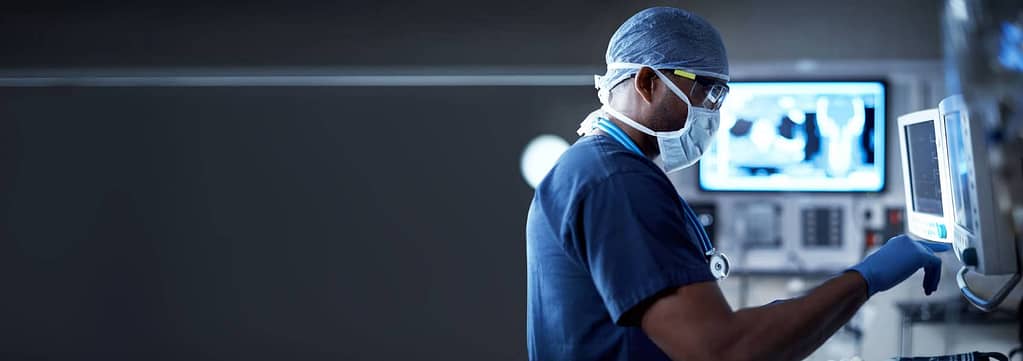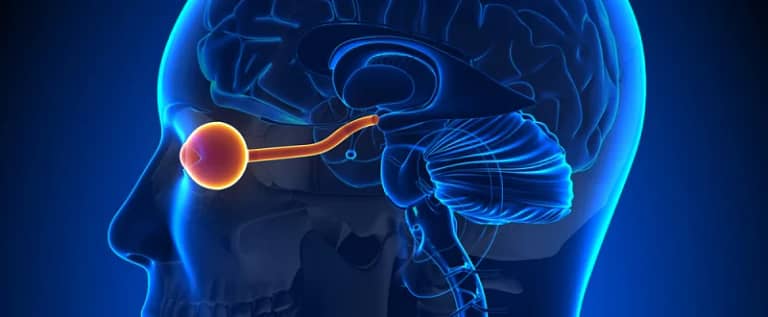Neuro-ophthalmology
What Does a Neuro Ophthalmologist Do?

Neuro-ophthalmology is a subspecialty of both neurology and ophthalmology. Neuro ophthalmologists specialize in vision problems that relate to your nervous system. Such issues include vision problems due to brain injuries or diseases, including trauma, a stroke, or an infection. Sometimes, these issues might not be a serious cause for concern, but other times, they can lead to more serious complications, such as vision loss.

A neuro-ophthalmologist can diagnose and treat neurological and systemic diseases that affect your sight and the movement of your eyes. The tests they may give you include electroretinography, optical coherence tomography, and multi-focal EGRs.
The treatment a neuro-ophthalmologists may give you will depend on your specific situation, but may include:
- Corrective lenses
- Botox injections for muscle spasms
- Surgical procedures
- Corrective lenses
- Botox injections for muscle spasms
- Surgical procedure.
What conditions does a neuro-ophthalmologist treat?
Neuro-ophthalmologists diagnose and treat many different types of vision issues. Some of the most common conditions they treat include:
- Double Vision
- Eyelid abnormalities
- Microvascular cranial nerve palsy (also sometimes called “diabetic palsy”)
- Myasthenia gravis
- Optic nerve disorders (optic neuritis, ischemic neuritis, Leber optic neuropathy)
- Psuedotumor cerebri
- Strabismus
- Thyroid eye disease
When do you have to see a neuro-ophthalmologist?
Your eye doctor may refer you to a neuro-ophthalmologist if you:
- Lose Visual Acuity
A loss of visual acuity (clarity and sharpness) may happen for several reasons, including uncorrected refractive errors, retina issues, problems with the optic nerves, and problems inside your skull, such as a tumor or aneurysm. The neuro-ophthalmologist can diagnose the issue and recommend treatment options.
- Have Trouble Moving Your Eyes
Issues that keep your eyes from moving properly include cranial nerve palsy and myasthenia gravis. These issues make it difficult to see. You should also visit with a neuro-ophthalmologist if your eyes begin to shake suddenly, as this can be a sign of nystagmus a condition that can cause problems with vision, depth perception, and balance and coordination.
- Have Tumors Compressing Visual Pathways
Even if you don’t notice any changes in your vision, but you have been diagnosed with a pituitary tumor (or another type of tumor in your skull) that’s pressing on your optic nerves, you should see a neuro-ophthalmologist to ensure that you don’t experience vision loss.
- Have Pressure in Your Head
Pressure building in your head can lead to the swelling of your optic nerves and, eventually, vision loss. It can be caused by brain tumors and also a condition called pseudotumor cerebri. A neuro-ophthalmologist can diagnose the cause and treat it.
- Develop Uneven Pupils
Any sudden changes in the size of your pupils may indicate a serious problem, such as a brain aneurysm, and should be addressed right away.

What to expect at neuro-ophathalmology clinic?
Before you go to a neuro-ophthalmology appointment, you should make sure that you have:
- Your current eyeglasses and prescription
- Relevant medical records
- Copies of any MRIs, CT scans, or other eye tests
You’ll likely have your eyes dilated during your visit, so you should have someone come with you who can drive you home.
During your appointment, the neuro-ophthalmologist will do a thorough eye exam, go over your medical history and ask about the symptoms you’re having. The neuro-ophthalmologist may:
- Test your vision and eye movement
- Check your color vision and field vision
- Examine your eyes with a slit lamp microscope
- Assess your eye pressure
- Perform a partial or complete neurological exam to test coordination and strength
- Review any scans that you brought in for your appointment
The exam may take a few hours. When it’s done, the neuro-ophthalmologist will go over your diagnosis and discuss treatment options. They may also order additional testing if necessary.

